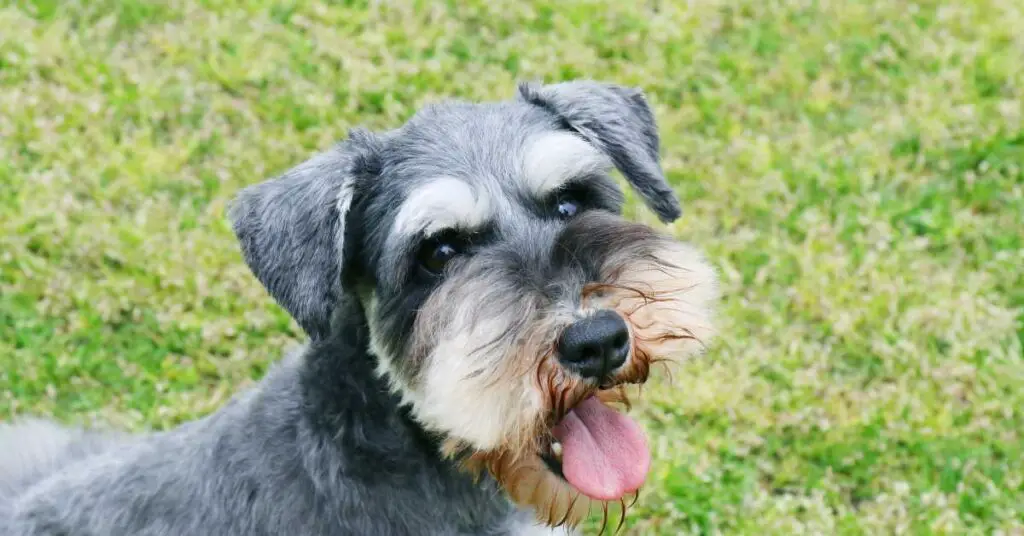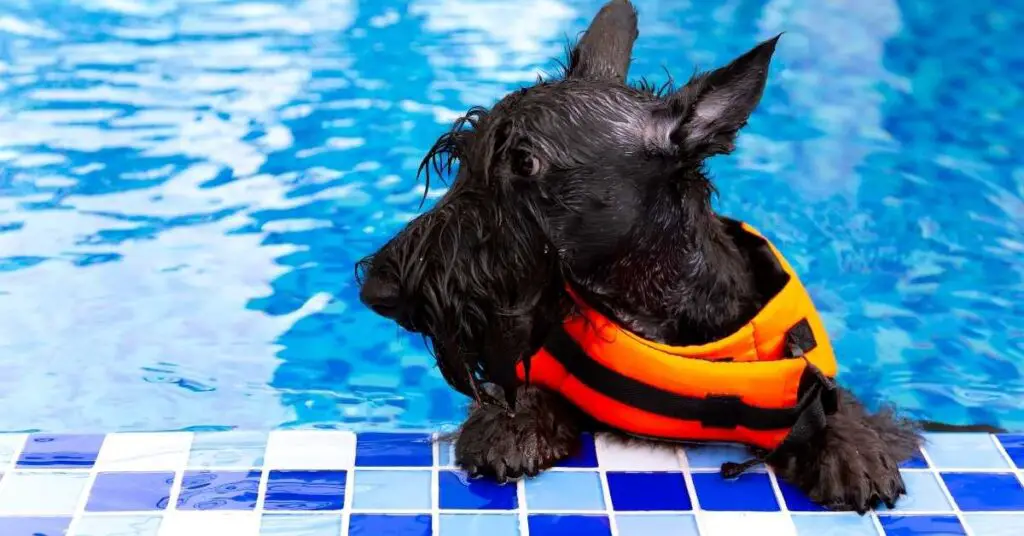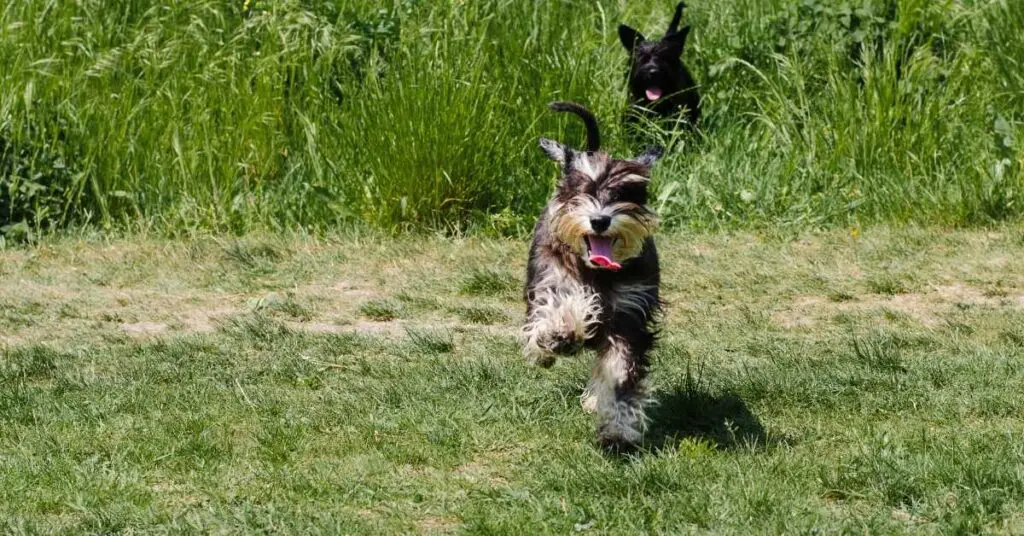If you’ve noticed your schnauzer displaying signs of Small Dog Syndrome, such as excessive barking or bossy behavior, there are effective strategies you can implement to address this issue.
By understanding the root causes behind this behavior and implementing proper training techniques, you can help your schnauzer develop into a well-behaved and balanced companion.
But how can you ensure that your efforts yield lasting results and prevent Small Dog Syndrome from taking hold?
The key lies in consistency and a holistic approach to your schnauzer’s well-being.
Key Takeaways
- Enroll in puppy classes for socialization and training.
- Establish clear boundaries and rules for consistent discipline.
- Provide mental and physical stimulation through activities and toys.
- Maintain consistent leadership with positive reinforcement to prevent Small Dog Syndrome.
Understanding Small Dog Syndrome
To understand Small Dog Syndrome, consider it as a behavioral issue commonly observed in small canine breeds like Schnauzers. These dogs may exhibit behaviors such as excessive barking, guarding behavior, and even aggression towards other dogs or people. Small Dog Syndrome can stem from a lack of proper training, inconsistent discipline, or even overprotective behavior from the owners. When dealing with this issue in Schnauzers, it’s important to address breed-specific challenges that may contribute to the development of this syndrome.
Behavioral therapy can be a crucial tool in managing Small Dog Syndrome in Schnauzers. By working with a professional trainer or behaviorist, you can develop a tailored plan to address specific behaviors and encourage more desirable ones.
Understanding the unique traits and tendencies of Schnauzers, such as their high energy levels and strong prey drive, can help in creating effective strategies to combat Small Dog Syndrome. Consistent training, positive reinforcement, and clear boundaries are essential in helping your Schnauzer overcome this behavioral issue.

Socialization and Training Techniques
How can you effectively socialize and train your Schnauzer to prevent Small Dog Syndrome? Socialization and training are key in shaping your Schnauzer’s behavior and preventing Small Dog Syndrome.
Here are some practical tips to help you in this process:
- Enroll in Puppy Classes: Puppy classes provide a structured environment for your Schnauzer to interact with other dogs and people, helping them learn proper social skills from a young age.
- Join Playgroups: Regular playdates with other dogs can help your Schnauzer learn how to communicate and play appropriately, reducing the chances of developing Small Dog Syndrome.
- Consult Canine Behaviorists: If you encounter behavioral issues or need guidance on socialization, seeking advice from canine behaviorists can provide valuable insights on how to best train and socialize your Schnauzer effectively.
Setting Clear Boundaries and Rules
Establishing clear boundaries and rules is essential for instilling discipline and structure in your Schnauzer’s behavior to prevent Small Dog Syndrome. To prevent your Schnauzer from developing unwanted behaviors associated with Small Dog Syndrome, it’s crucial to establish yourself as the authority figure in your dog’s life. Consistent discipline and clear rules help your Schnauzer understand what’s expected of them and what behaviors aren’t acceptable.
When setting boundaries, be firm but fair. Use positive reinforcement to reward good behavior and redirect or ignore undesirable actions. Consistency is key; your Schnauzer needs to know that the rules apply all the time, not just when it’s convenient for you. By establishing authority through consistent discipline, you create a secure and structured environment for your Schnauzer to thrive.
Providing Mental and Physical Stimulation
Engage your Schnauzer in a variety of stimulating activities to keep their mind sharp and their energy well-balanced. Mental enrichment and regular exercise routines are crucial in preventing Small Dog Syndrome.
Here are some practical ways to provide your Schnauzer with the mental and physical stimulation they need:
- Interactive Toys: Invest in interactive toys that challenge your Schnauzer’s problem-solving skills and keep them engaged.
- Training Sessions: Regular training sessions not only help reinforce positive behaviors but also provide mental stimulation for your Schnauzer.
- Outdoor Adventures: Take your Schnauzer on daily walks, hikes, or trips to the park to let them explore new environments and burn off excess energy.
Consistent Leadership and Positive Reinforcement
To ensure your Schnauzer avoids Small Dog Syndrome, maintain consistent leadership and utilize positive reinforcement techniques to foster desired behaviors. Obedience training plays a crucial role in establishing your role as the leader of the pack in your Schnauzer’s eyes. By setting clear boundaries and consistently enforcing rules, you can prevent your Schnauzer from developing unwanted behaviors associated with Small Dog Syndrome.
Dogs, including Schnauzers, have a pack mentality ingrained in their nature. They look to their owners for guidance and rely on a structured hierarchy to feel secure. By providing consistent leadership through obedience training, you establish yourself as the leader and promote a sense of security in your Schnauzer.
Positive reinforcement techniques such as treats, praise, and rewards for good behavior help reinforce the desired actions and strengthen the bond between you and your furry companion.
Seeking Professional Help When Needed
When facing challenging behaviors or issues beyond your expertise, consider seeking professional help for your Schnauzer to address them effectively. Sometimes, despite your best efforts, your Schnauzer may exhibit behaviors that require specialized intervention. Seeking professional assistance can provide you with the necessary tools and strategies to help your furry friend overcome these challenges.
Behavior Modification:
A professional dog trainer or behaviorist can assist in identifying and modifying problematic behaviors through targeted training techniques.
Canine Therapy:
In some cases, your Schnauzer may benefit from canine therapy sessions to address underlying emotional or psychological issues contributing to their behavior.

Expert Guidance:
Professional help offers you personalized guidance tailored to your Schnauzer’s specific needs, ensuring a customized approach to behavior management.
Frequently Asked Questions
Can Small Dog Syndrome Be Inherited Genetically in Schnauzers?
Genetic predisposition plays a role in small dog syndrome in schnauzers. Utilize effective behavioral training techniques to curb this behavior early on. Consistent training, socialization, and positive reinforcement can help prevent this issue.
Are There Specific Triggers or Situations That Can Exacerbate Small Dog Syndrome in Schnauzers?
To prevent exacerbating small dog syndrome in schnauzers, be consistent in training techniques and socialization. Avoid reinforcing negative behaviors. Create a positive environment with clear boundaries. Consistency in your approach and the environment can help prevent issues.
How Can I Help My Schnauzer Overcome Past Experiences That May Have Contributed to Small Dog Syndrome?
Help your schnauzer overcome past experiences contributing to small dog syndrome by focusing on behavioral training and socialization. Use positive reinforcement and consistent discipline to reshape behaviors. With patience and dedication, you can guide your schnauzer towards positive change.
Are There Any Medical Conditions That Can Mimic the Symptoms of Small Dog Syndrome in Schnauzers?
To address symptoms resembling small dog syndrome in schnauzers, consult a vet for proper diagnosis. Rule out medical conditions like hypothyroidism or pain. Consider behavioral therapy or training techniques. Nutritional supplements and herbal remedies may also support overall health.
Can Small Dog Syndrome Manifest Differently in Different Age Groups of Schnauzers?
To address small dog syndrome in different age groups of schnauzers, focus on tailored training techniques and behavioral modifications. Implement age-specific interventions and socialization strategies to prevent issues from arising or to correct existing ones effectively.
Conclusion
To prevent your schnauzer from developing small dog syndrome, focus on socialization, training, setting boundaries, providing stimulation, and being a consistent leader.
By following these steps and seeking professional help when needed, you can help your schnauzer become a well-behaved and balanced companion.
Remember, with patience, consistency, and positive reinforcement, you can prevent small dog syndrome and ensure a happy and healthy relationship with your beloved pet.






